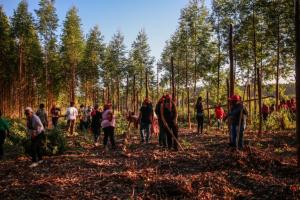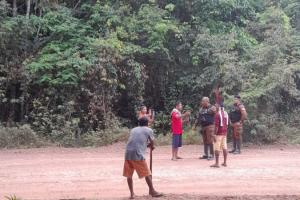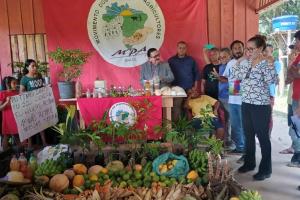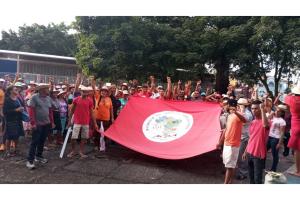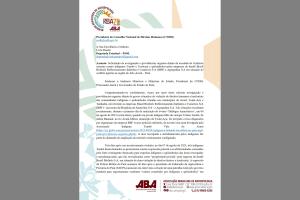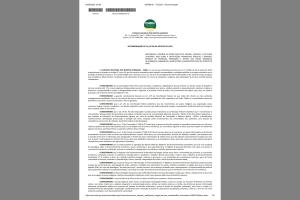Struggles Against Tree Monocultures
Corporate profit drives land grabs to install industrial tree monocultures. Where industrial plantations take root, communities' territories and lives are violently invaded, their forests destroyed and their water polluted. When communities resist, companies tend to respond with aggression. Despite this extreme violence, communities around the world are resisting, organizing and joining forces to defend their territories. Every September 21 the International Day of Struggle against Monoculture Tree Plantations is celebrated.
Articles
13 March 2025
WRM expresses its solidarity with the struggle of women from the Rural Landless Workers' Movement (MST) in Brazil. On this day, March 13, they are taking various actions across the country in favor of agrarian reform and against the multiple forms of violence perpetrated against women, under the slogan “Agribusiness means violence and environmental crimes. The struggle of women is against capital”. One of the actions is taking place in the state of Espírito Santo, where 1000 women have occupied an area belonging to Suzano.
Articles
1 November 2024
In the upper Acará River in Pará, in the Brazilian Amazon, Turiwara indigenous people are defending their territory against the oil palm monoculture company Agropalma, that invaded the lands. The Turiwara fear for their lives due to the presence of company guards and other heavily armed people, frightening them.
Articles
12 June 2024
São famílias da Comunidade de Virgílio Serrão Sacramento no município de Moju (estado do Pará, Brasil) que coletivamente somam forças desde o final de 2015 quando reocuparam o território conhecido pela ação dos grileiros, no qual já fizeram várias vítimas. Desde então, o Acampamento ocupa sua terra com moradias, plantações, produção e fornecimento de alimentos.
Articles
2 April 2024
Brazil’s Small Farmers’ Movement (MPA) has written to the state of Pará’s authorities requesting that they urgently regularize the land tenure of three peasant communities threatened with eviction. The letter has the support of 60 organizations from several countries.
Articles
24 February 2024
Between August 4 and 7, 2023, there were violent attacks on the lives of four indigenous Tembé people as a consequence of the struggle to take back territories from the hands of the company Brasil BioFuels (BBF). In the face of this, the Brazilian Anthropological Association (ABA) sent a formal letter to the authorities requesting the immediate regularization of indigenous and quilombola territories, as well as an investigation into the mechanisms of criminalization of their leaders and the suspension of all incentives to companies involved in the violence.
Articles
24 February 2024
On August 8, 2023, the National Human Rights Council (CNDH) sent a recommendation to federal and state authorities regarding measures to protect, promote and defend indigenous peoples and quilombola, riverine, peasant and agro-extractivist populations in Pará state.
